2020-2035
World oil crisis
Throughout this period, the world is thrown into turmoil, as oil and gas prices begin to spiral out of control – crippling many economies and triggering widespread social unrest. Many countries in the West experience a decline in living standards, with oil rationing and conservation measures introduced by governments. There are sharp reductions in travel, tourism and aviation, leading to increased localisation of goods and services.
Cheap access to light and sweet conventional crude oil had fuelled much of the world's growth and prosperity during the 20th century. However, production reached a plateau in the first decade of the 21st century,**resulting in a shift to "unconventional" sources like tar sands, shale, offshore wells and liquefied coal and gas. These were harder to extract – with lower energy return on energy invested – and therefore more expensive. Many of the reserves had also been overstated, with very high decline rates. These unconventional sources would provide only a temporary solution to the problem of global peak oil.* This situation was compounded by rapid industrialisation of China, India and other emerging economies placing huge demand on available supplies.
By the 2020s, the world's economy is in peril. This crisis is gradually resolved by a shift to renewable energy,*hybrid/electric vehicles,* higher fuel efficiency* and alternative liquids such as algae biofuel.*** The transition is by no means a smooth one, however. It requires an emergency response – nothing less than an all-out Manhattan Project on a global scale.*
2020-2026
The Euclid Space Telescope reveals new insights into dark matter and dark energy
Euclid – named after the ancient Greek mathematician – is part of the European Space Agency (ESA) Cosmic Vision programme, with NASA providing some assistance in the form of instrumentation and scientific analysis. Launched in 2020 and placed at Sun-Earth Lagrange point L2, its mission duration is six years, during which time it studies the nature of dark matter and dark energy.*
Matter as we know it – the atoms in the human body, for example – is only a fraction of the total matter in the known universe. The rest, about 85 percent, is dark matter consisting of particles of an unknown type. This was first postulated in 1932, but has remained undetected directly. It is called dark matter because it does not interact with light. Dark matter interacts with ordinary matter through gravity, binding galaxies together like an invisible glue.
While dark matter pulls matter together, dark energy is pushing the universe apart, at an ever-increasing speed. In terms of the complete mass-energy content of the universe, dark energy dominates. Even less is known about dark energy than dark matter, having only been discovered by astronomers in 1998 (the Nobel Prize for Physics was subsequently awarded for their work in 2011).
Using a 1.2m (3' 11") wide-view telescope at visible and near-infrared wavelengths, Euclid maps the shape, brightness and 3D distribution of 2 billion galaxies covering over one-third of the sky. It measures the geometry and growth rate of the universe in higher resolution than was ever possible before, through a combination of weak gravitational lensing, redshift-space distortions and galaxy cluster observations.
Taken together, these ultra-precise measurements offer the best explanation yet of how the acceleration of the universe has changed over time – revealing new clues about the origin, evolution and ultimate fate of the cosmos – and the role of dark matter and dark energy in each of these processes, revolutionising our understanding of these hitherto largely unknown phenomena.
2020-2025
Five-year survival rates for Hodgkin's lymphoma are approaching 100%
Cancer has seen many breakthroughs in recent years and Hodgkin's lymphoma is now among the types on the verge of being defeated. In much of the developed world, five-year survival rates are approaching 100%.**
2020
America's power shift is destabilising the Asia-Pacific region
As part of its "pivot to Asia", the USA has shifted much of its naval force to the Asia-Pacific in an effort to counter China's geopolitical influence during this decade.** Countries in East Asia have begun to polarise under the tension of the two global powers, despite efforts to maintain stability in the region.** Japan and the Philippines have moved closer to the re-emerging American power in the hope of stopping China's territorial claims of the Senkaku (Diaoyu), Spratly and other islands – while Cambodia, South Korea and other nations try to remain neutral for the sake of economic interests as the region divides. The US and China are not the only major players shifting their sights on this part of Asia: Russia has begun to move east as well.* In the coming years, geopolitical tensions in the region will shake the global economy, stretching US-China relations to near-breaking point, as the latter begins to displace the former as the leading superpower. China has recently developed its first stealth fighter* and has a growing fleet of aircraft carriers.
Generation X is reshaping global politics
As the new decade begins, a fresh generation of leaders and decision-makers is now emerging on the world stage. With the last of the Silent Generation passing away, and the Baby Boomers waning in their influence, the so-called "Generation X" is coming into power.
Born between the late 1960s and early 1980s, Gen-Xers are more heterogeneous than previous groups: diverse in race, class, culture and ethnicity. They are more liberal and progressive than their parents,* with less respect for rules, authority and established policies. They are less likely to be religious. For most or all of their lives, they have grown up surrounded by computers – making them savvy and comfortable with technology, flexible and more open to new ideas. They have more concern for the environment, are more likely to believe in climate change and are generally more accepting of science.
Angry at the social, political and economic legacy bequeathed to them, the Gen-Xers are using their newfound power to build a different kind of world. They are no longer willing to bow to the demands of the Baby Boomers - who many feel have robbed them of their future. They are also not willing to let the Millennials (Generation Y) get a free ride when it comes to paying their fair share.*
From 2020 onwards, there is a shift of money and resources away from senior citizens and towards those in their middle years. Property and inheritance laws, pensions, retirement plans and a number of elderly benefits undergo significant changes, as Gen-Xers work to stem the gap between themselves and their parents.
Banks and financial institutions are finally reformed this decade - though not without a fight, and not to the extent that many voters would prefer. However, there is now at least some focus on long term accountability, rather than short term profits and risk-taking. Employees gain more rights, freedoms and flexibility in the workplace, with offices becoming more casual and informal. Social media and other technologies continue to drive the spread of democracy around the world.
Thanks to the Gen-Xers, many countries begin to relax their laws on private recreational drug use, gay marriage, prostitution, euthanasia and so on. Legalisation and taxation of cannabis adds significantly to government revenues whilst helping to lower crime rates. Scientific research and environmental protection are given higher priorities. These trends were emerging in any case, but are now being accelerated by the Gen-Xers.
Internet use reaches 5 billion worldwide
The number of Internet users has now reached almost 5 billion, equivalent to the entire world population in 1987. This compares with 1.7 billion users in 2010 and only 360 million in 2000.* Vast numbers of people in the developing world now have access to the web, thanks to a combination of plummeting costs and exponential technology improvements. This includes laptops, phones and tablet devices costing only a few tens of dollars, together with explosive growth in mobile networks. Even some of the most remote populations on Earth can take advantage of the web, thanks to the infrastructure now in place.
Broadband speeds have continued to accelerate. In the USA, a project known as the National Broadband Plan is coming to fruition. This gives nearly 100 million Americans access to home broadband speeds of at least 100 Mbps.* Connections of 1 Gbps are also present in the vast majority of schools, universities, libraries, hospitals and government buildings. Broadband is now available to essentially the entire population. By 2020, the USA has become one of the leaders in mobile innovation, with among the most extensive wireless networks of any country. There is a massive increase in the broadcasting of wireless Internet and broadband multimedia.
In Australia, one of the world's most ambitious upgrades – the National Broadband Network – is nearing completion. Vast extensions to the fibre-optic cable networks are being undertaken, with the result that 93% of the population has access to 1 Gbps transfer speeds by 2021.* Australia rises to be one of the leading digital economies, with many new jobs and opportunities created. The remaining 7% of households are able to utilise two new satellites for a minimum speed of 12 Mbps.
South Korea - one of the most technologically advanced places in Asia - has already had gigabit transfer speeds around the country since late 2012.* It has since strengthened its broadband network, upgrading it even further. China has also laid down a national broadband network, another step in its path to becoming a developed nation.
The majority of developed and developing nations around the world now have greatly improved web access compared to what existed previously. However, there is still the problem of a "digital divide", with rural areas particularly affected. In the UK, for example, while more than half of users now have access to 100 Mbps or faster, around 10% of the population is limited to substantially slower connections.*
Link :
Super-Centenarians : Future of Ageing Society
On 12th of July 2013 (1 PM Brussels time / CET), as part of the "Future Fridays" series of webinars on Futurium, Anne-Sophie Parent (Age Platform) shared her vision on the Future of Ageing Society. The webinar was chaired by Peter Wintlev-Jensen from the Digital Social Platforms Unit of DG CONNECT.
Link : https://ec.europa.eu/digital-agenda/futurium/en/content/super-centenarians-future-ageing-society
Bien à vous,












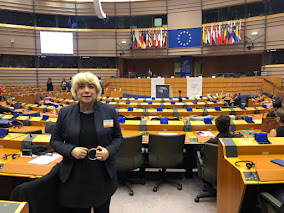
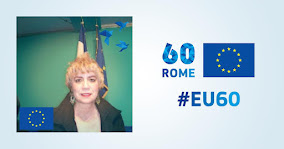
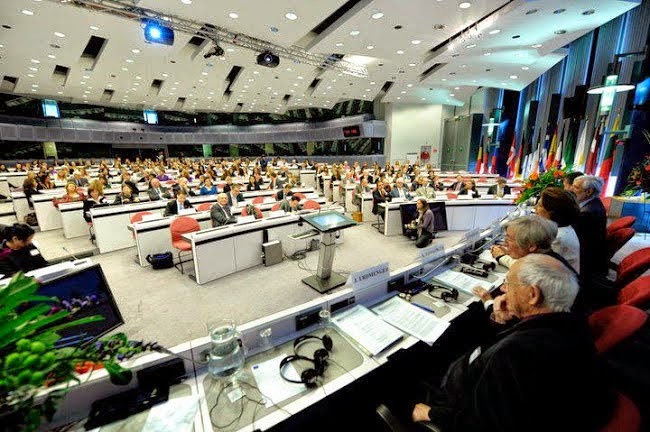




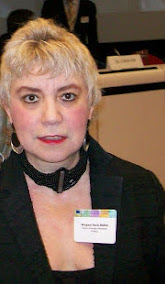
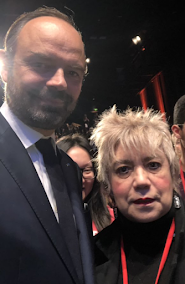











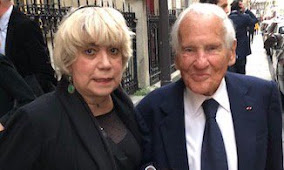





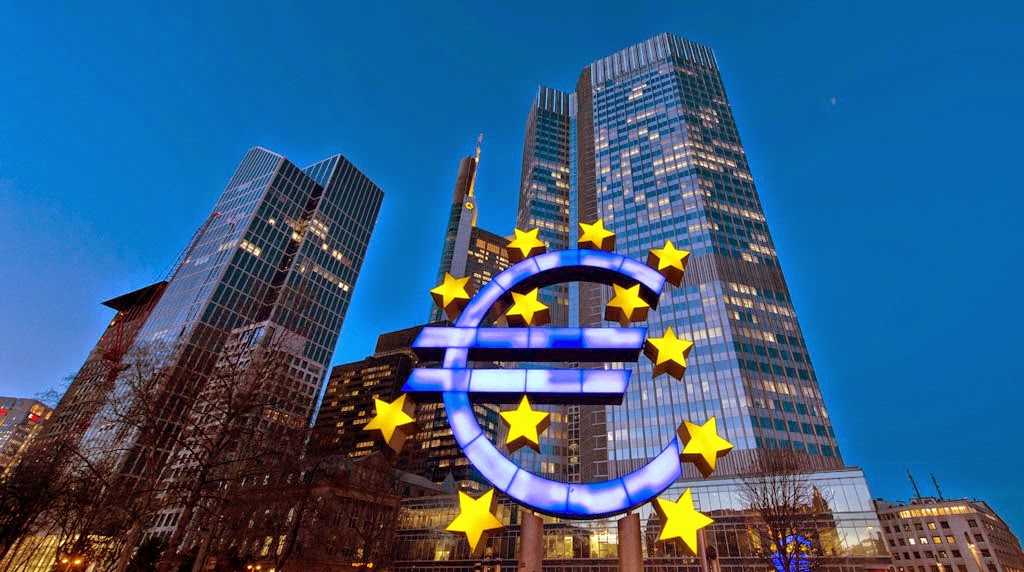










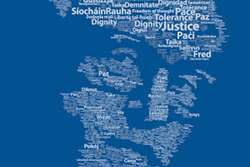





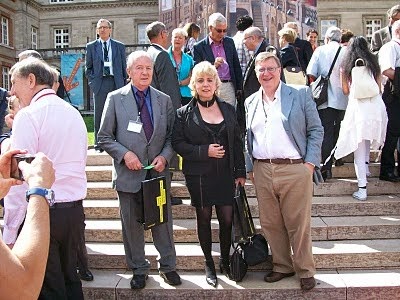
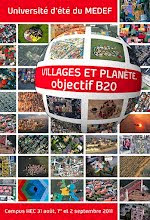
















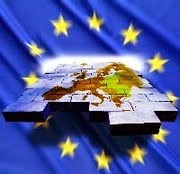
Aucun commentaire:
Enregistrer un commentaire